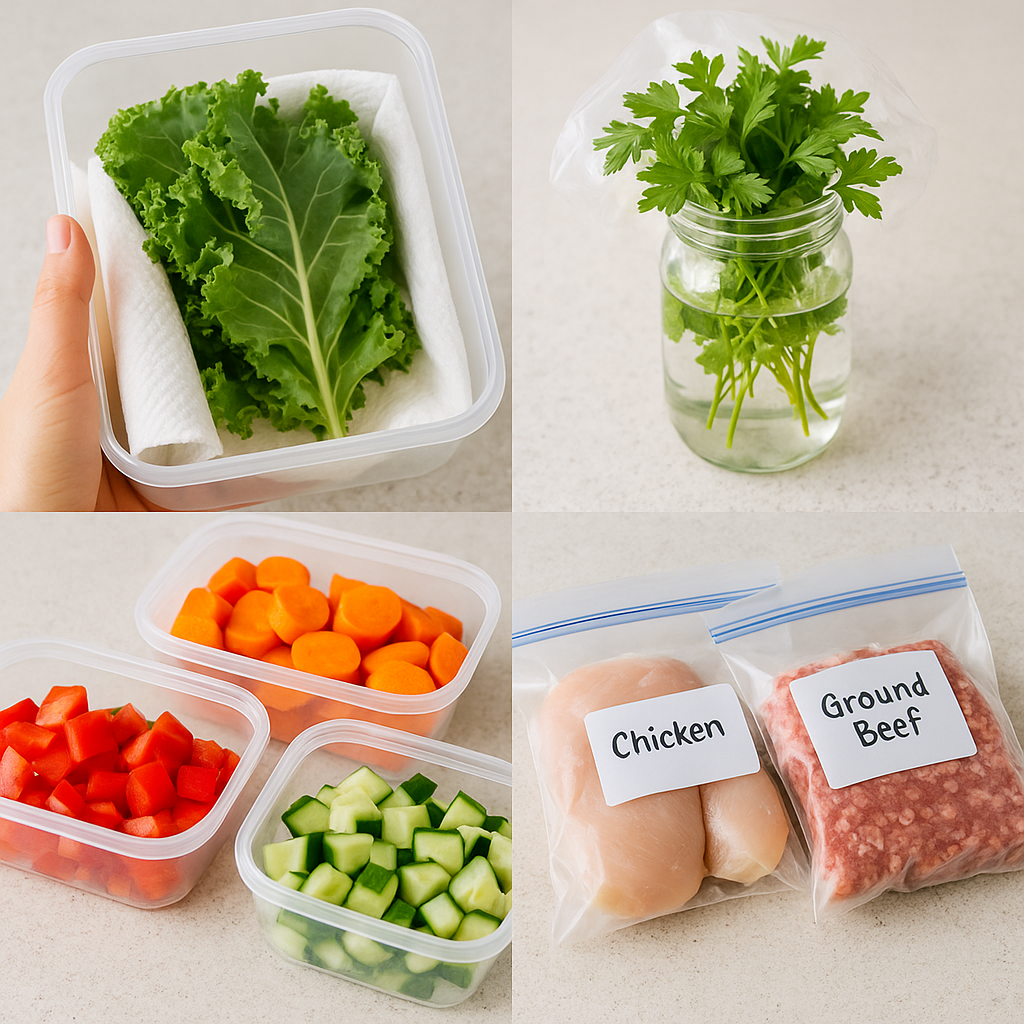Why Proper Storage Matters When Cooking Solo
If you’ve ever wondered how to store ingredients to avoid waste, you’re not alone. When you live alone, buying in bulk can often lead to spoilage. As a result, a head of lettuce, a pack of chicken, or a bunch of herbs might go bad faster than you expect. Learning the best storage practices helps you:
-
Reduce food waste
-
Stretch your grocery budget
-
Keep ingredients fresher for longer
-
Make cooking more convenient and stress-free
Smart Storage Tips for Common Ingredients
Knowing how to store ingredients to avoid waste starts with understanding the specific needs of each type of food. In addition, simple adjustments to how you store them can make a big difference in freshness and flavor.
1. Vegetables and Greens
-
Leafy greens (like spinach or lettuce): Wrap in paper towel and place in a container or zip-top bag. Store in the crisper drawer for optimal freshness.
-
Carrots and celery: Cut into sticks and store in water in a sealed container. Change the water every 2–3 days to maintain crispness.
-
Avocados: Store ripe ones in the fridge; to save half an avocado, leave the pit in, drizzle with lemon, and wrap tightly.
2. Fruits
-
Berries: Wash only before eating. Store in a breathable container with a paper towel to absorb moisture.
-
Bananas: Keep on the counter until ripe. After that, peel and freeze in chunks for smoothies.
3. Dairy and Cheese
-
Cheese: Wrap in parchment or wax paper before placing it in a plastic bag to allow it to breathe while staying protected.
-
Milk and yogurt: Keep in the back of the fridge, where the temperature is most stable.
4. Fresh Herbs
-
Treat like flowers: trim stems and place in a jar with water. Cover loosely with a plastic bag and refrigerate.
-
Alternatively, chop and freeze in olive oil using an ice cube tray. This extends shelf life while preserving flavor.
5. Protein (Meat, Chicken, Fish)
-
Divide bulk packs into individual portions and freeze immediately.
-
Label each portion with the date and use within 2–3 months. Moreover, always thaw overnight in the fridge for food safety.

Bonus Tips to Reduce Waste
To fully master how to store ingredients to avoid waste, adopt these extra strategies:
-
Use clear containers so you can see contents easily and avoid forgetting items
-
Label leftovers with dates for quick identification
-
Create a “use soon” bin in the fridge for near-expiring foods
-
Buy frozen fruits and vegetables — they last longer and reduce waste significantly
Where to buy: Airtight containers, herb keepers, and freezer-safe bags are available at OXO — trusted tools for smart food storage.
Want to cook more without wasting? Try our Vegetarian Grilled Cheese Sandwich — quick, flexible, and perfect for using up small amounts of veggies or cheese.

[…] out our guide on How to Store Ingredients to Avoid Waste. By learning how to store properly, you extend the shelf life of your groceries and reduce […]